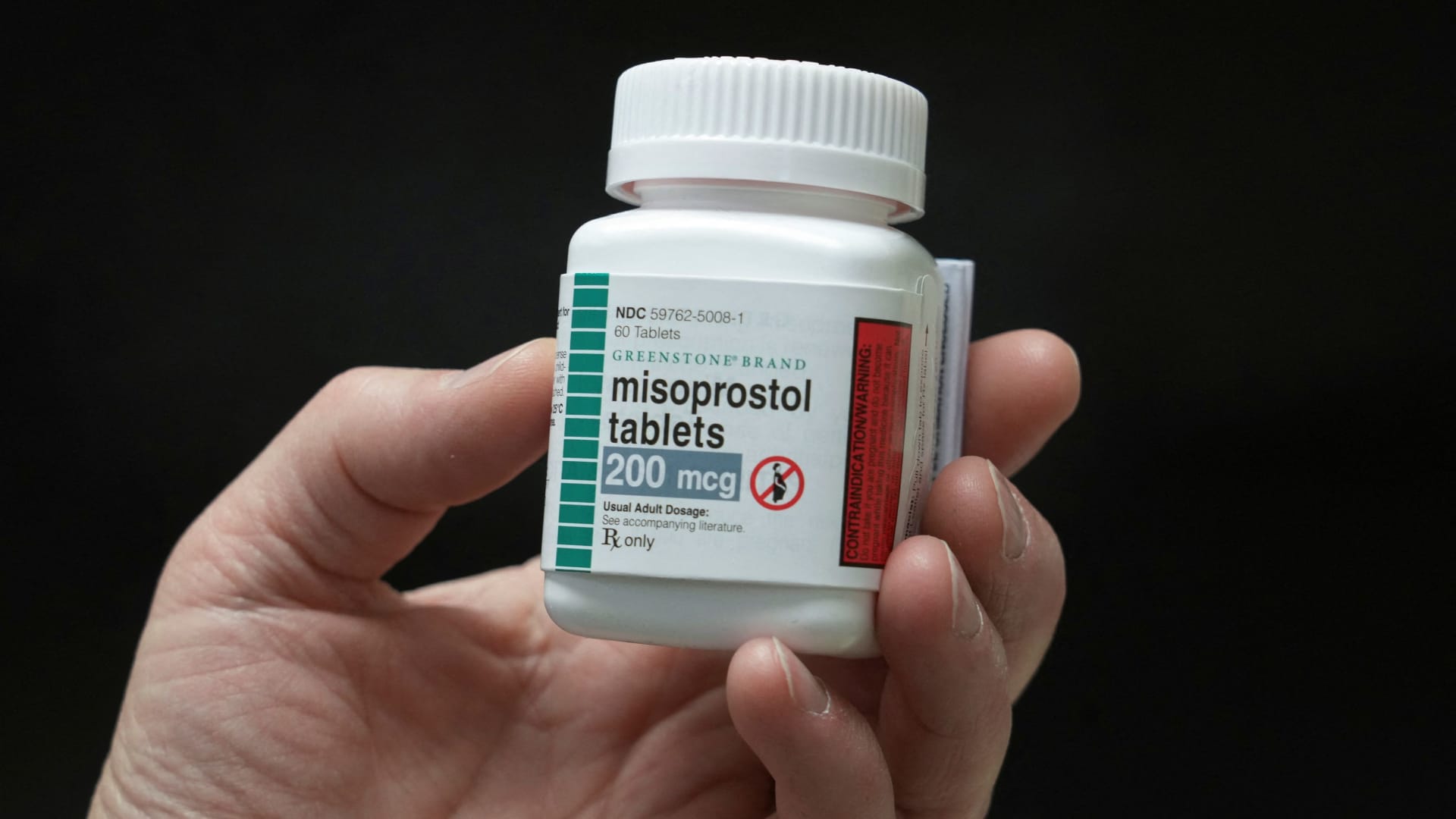Misoprostol, used to terminate early pregnancies, are displayed in a pharmacy in Provo, Utah, May 12, 2022.
George Frey | Reuters
A federal judge’s ruling could take the abortion pill mifepristone off the market — but there is another medication that could provide an alternative for people seeking to terminate their pregnancies.
Two states in reaction to that ruling already are stockpiling supplies of misoprostol, the drug that doctors typically prescribe with mifepristone to induce an abortion.
California on Monday announced it had secured around two million misoprostol pills. On the same day, Massachusetts purchased about 15,000 doses of the drug.
The moves came three days after Judge Matthew Kacsmaryk suspended the Food and Drug Administration’s approval of mifepristone.
Kacsmaryk in his ruling in U.S. District Court in Amarillo, Texas, said that the FDA improperly rushed its approval process for mifepristone when it signed off on the drug in 2000.
The judge delayed his ruling from taking effect for a week to give the Biden administration time to appeal it.
That case, and another one related to mifepristone in federal court in Washington state, is likely to end up at the Supreme Court.
Misoprostol is only approved by the FDA for the treatment of stomach ulcers.
But the use of misoprostol alone to induce abortions is endorsed by the World Health Organization and the American College of Obstetricians and Gynecologists. It’s an abortion regimen commonly used throughout the world, especially in countries where mifepristone is not available.
That leaves misoprostol available as a safe and effective treatment for women who want to end their pregnancies. Doctors can issue a so-called off-label prescription for that purpose.
Some U.S. abortion providers are prepared to offer misoprostol as a stand-alone treatment, according to Jenny Ma, senior staff attorney at the Center for Reproductive Rights, a legal advocacy group that represents abortion providers worldwide.
But Ma noted during a call with journalists Monday that other providers may not be ready to switch to a misoprostol-only regimen.
More than half of abortions in the U.S. use a combination of mifepristone and misoprostol, according to the Guttmacher Institute, a research organization focusing on sexual and reproductive health.
In that regimen, patients first take mifepristone first, which works by blocking progesterone, a hormone the body needs for a pregnancy to continue.
They then take misoprostol a day or two later, causing the uterus to expel the pregnancy tissue.
The two-drug protocol successfully ends a pregnancy in more than 99% of its uses, according to a 2015 study published in the journal Obstetrics & Gynecology.
Research in recent years suggests that misoprostol is only slightly less effective at terminating a pregnancy by itself.
A study released in February by abortion researchers at the University of Texas in Austin found that misoprostol was 88% effective at causing an abortion.
